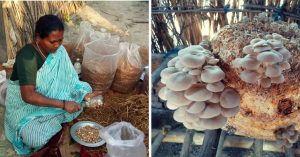TBI Blogs: How a Rajasthan Village Overcame Centuries Of ‘Tradition’ and Apathy to Ban Child Brides
The villages in the desert of Rajasthan are notorious for child brides, but groups of girls are now banding together to defy and upturn a long-held tradition to assure a new and better future for themselves. Tarun Kanti Bose takes a closer look.
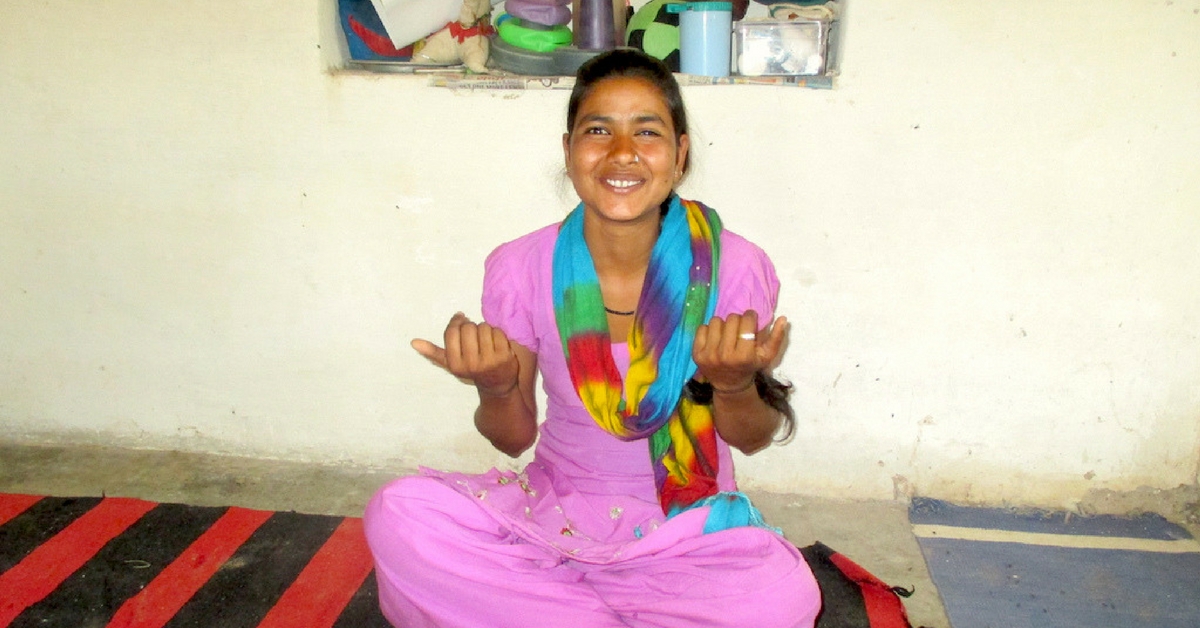
Suman was just six when her father died in 2006. Brought up by her mother, she grew up in a desert village in Bikaner where child marriage was the norm rather than the exception. But winds of change were blowing through Jaisalsar village, and a different future unfolded for Suman.
“My mother stood behind me,” says Suman, now 17 years old. “The doors could have closed otherwise,” she said, pointing to the end of education, ill health, and thwarted potential she would have suffered as an individual if she were given away as a child bride. “I want to study, which wouldn’t happen if I married at the age of 6 or 14,” she told VillageSquare.in. Suman secured first division in her Class X examination. This year, she has appeared for the Class XII Boards.
Although India enacted the stringent Prohibition of Child Marriage Act in 2006, it was barely implemented in many parts of India. In Rajasthan, the rate of child marriage remains a horrendous 65 %, way above the national average.
The National Family Health Survey (NFHS, 2015-16) shows 33.4 % of women in Bikaner district between the ages of 20-24 were married before they were 18. Maternal death between the ages of 15-19 is as high as 16.7 %. In the rough terrain of Rajasthan’s desert districts of Bikaner, Jaisalmer, Jodhpur, and Barmer, child marriages have been part of the lifestyle for centuries.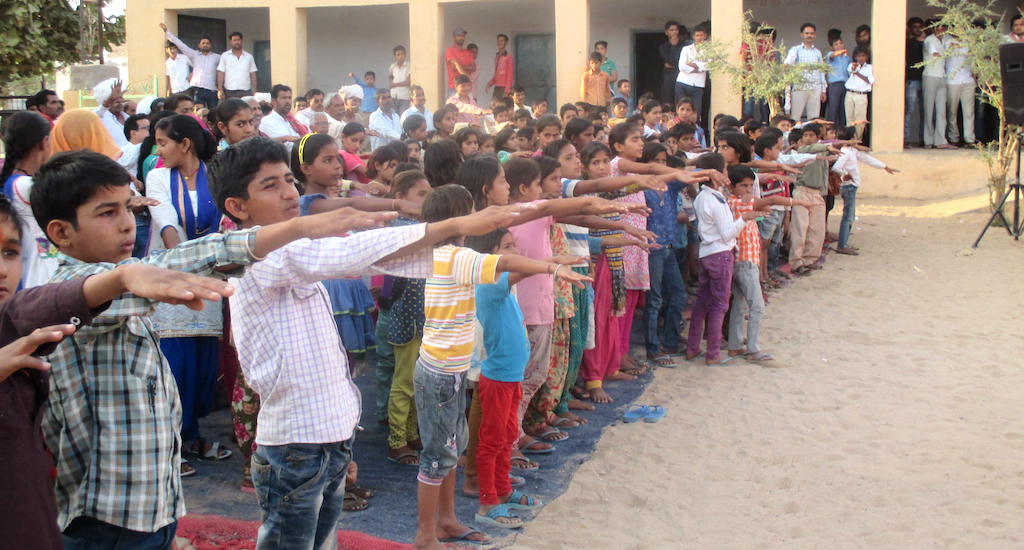
The sands have shifted
Although the overall scenario in the state needs much improvement, some interventions on the ground have now helped in a social transformation in parts of rural Rajasthan society. The people of Jaisalsar village, in Sridungargarh administrative block of Bikaner district, resolved they would not marry off any underage girl. The last child marriage took place here in 2014.
The results are already visible. Girls’ enrollment in secondary classes and colleges has increased. A majority of the villagers are involved in farming, and very few migrate to cities of Rajasthan, Delhi, Mumbai, Kolkata, or other parts of the country for better options of livelihood.
At the village’s anganwadi (day care) centre, girls and mothers had gathered around Santosh Kanwar, who is doing her Master’s in Political Science and leading the girls groups. “Those girls who were married at an early age were denied the opportunity to grow. I think child marriage challenges the basic right of child brides to education, health, protection, and development,” Kanwar told VillageSquare.in.
“The girls are forced into it a lot more in comparison to their male counterparts, and it impacts girls with more intensity. In Rajasthan’s desert districts, girls belonging to the poor strata are more likely to be married early than the girls whose parents are from a financially stronger background.”
Sitting close to Santosh, ebullient Babita pointed out, “I have seen girls, even many of my cousins, who had to marry before the age of 18, and had little say about whether or when they should be pregnant. Compared to other age groups, these married girls had both the lowest use of contraception and the highest levels of unmet need for family planning. Child brides are not fully mature to be a mother, and they have high chances of facing abuse.”
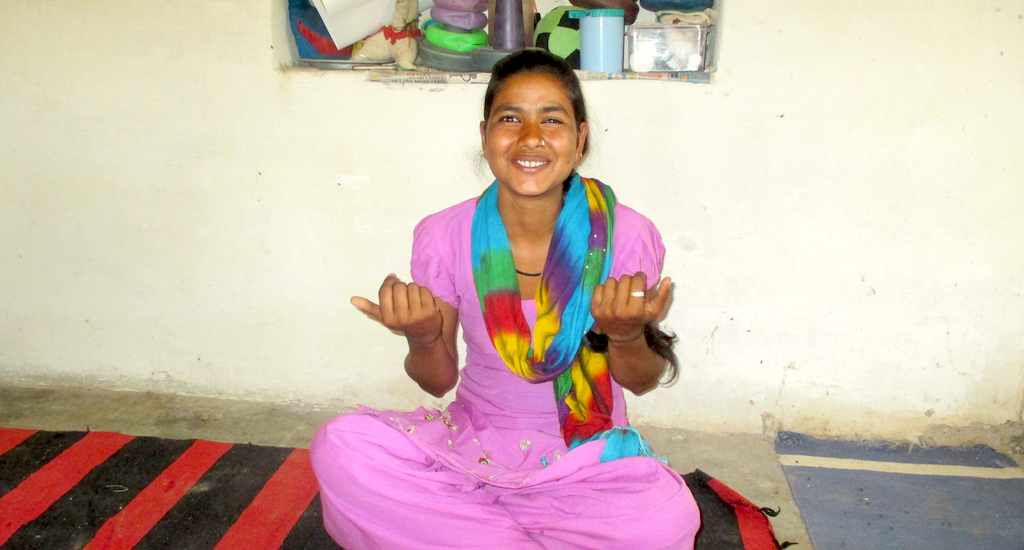
Girls take a lead
Renu, a final year student of B.A. Arts, joined Suman in her efforts to oppose child marriage. “Girls groups like Ekta (Unity) and Jagriti (Awakening) formed in the village to build up awareness and drum up support for stopping child marriage in the village. We hold the meetings of our groups once in a month to orient the girls on the issues of health, nutrition, education, and child marriage. We persuaded parents to enroll their daughters in schools. But still, a few among them tried to marry their daughters at the age between 8-10, and then we adopted non-violent protests to stop the parents. In the face of continuous protests, the parents had to relent.”
In Jaisalsar, respected elders and opinion leaders helped sensitise villagers. URMUL Trust, an NGO from Bikaner, helped, encouraging girls not to drop out of school. The girls’ groups and gram panchayat functionaries worked with school management committees to ensure girls’ drop rates fell. Girls’ groups came together at the Balika Manch (Young Girls’ Association) to work as pressure groups.
“Each day, our motivation level increased. I persuaded 22 girls to get readmission in the school,” says Suman. “In our village, whenever a girl child is born, our girls’ groups rejoice by playing on a plate with a spoon (thali bajana).”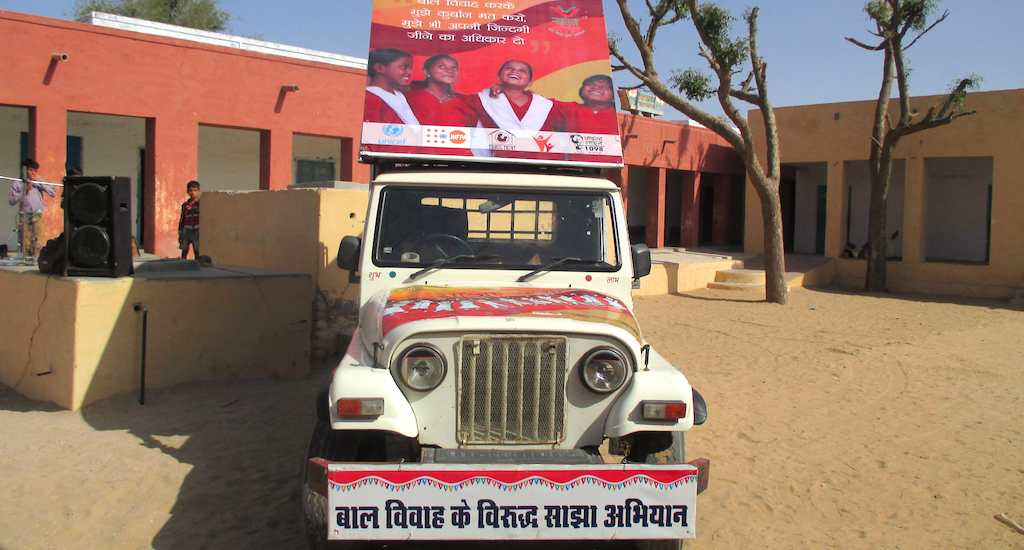
Support of the village council
“In the aftermath of taking the pledge publicly (in 2014), panchayat officials joined in in eliminating the malaise from the village. There has been no child marriage since 2014,” Surinder Sharma, a retired government school teacher, told VillageSquare.in. “Their support to the girls’ groups and total involvement had increased their accountability.”
Shobhita Rajagopal, Jaipur-based sociologist and Associate Professor, Institute of Development Studies, confirmed the panchayat’s role. She told VillageSquare.in, “Ownership by a panchayat is a sustainable model since panchayats are constitutional bodies. The child marriage-free panchayat model essentially works on public recognition as a positive incentive.”
Continuous process
The campaign to make a village child marriage-free is a continuous process. The panchayat has a campaign van with boards displaying slogans calling for an end to child marriage that travels through rural areas with a troupe of musicians, singers, and puppet performers. At Jaisalsar Government Secondary School, Nathu Khan’s mellifluous voice voices the sensibilities of students and youth.
The movement to end child marriages is spreading through desert areas. The campaign is running successfully in 177 villages of Bikaner, Jodhpur, Barmer, and Jaisalmer districts. Some 49 villages have stopped the practice.
Adapted from an article originally published on VillageSquare.in. Subscribe to VillageSquare’s weekly update on the website for more stories from rural India.
Like this story? Or have something to share? Write to us: [email protected], or connect with us on Facebook and Twitter.
NEW: Click here to get positive news on WhatsApp!
This story made me
- 97
- 121
- 89
- 167
Tell Us More
We bring stories straight from the heart of India, to inspire millions and create a wave of impact. Our positive movement is growing bigger everyday, and we would love for you to join it.
Please contribute whatever you can, every little penny helps our team in bringing you more stories that support dreams and spread hope.






